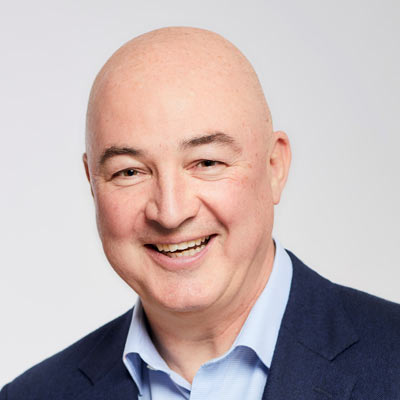Thinking that you have to trade off financial performance and sustainability is a “false dichotomy” and a “ridiculous mindset,” according to Alan Jope, CEO of Unilever, one of the largest consumer goods companies on the planet. Jope wants Unilever to be famous for three things: creating an envied portfolio of purpose-driven brands, proving the link between sustainable business and better financial outcomes, and serving as a beacon for diversity and inclusion—and he believes that radical transparency is the way to get there.
Brown Advisory’s Mick Dillon sat down with Jope to discuss radical transparency, attracting the next generation of consumers and employees, shaping social and environmental change, the power of capitalism and the need to evolve it. And then Mick and Brown Advisory’s Katherine Kroll sat down the next day to consider their takeaways as investors.
Listen and subscribe to our podcast from your mobile device:
Episode Introduction
Mick Dillon: In this time when many people’s reality seems to be increasingly unreal – in the face of pandemic, economic upheaval and racial injustice -- CEOs have often been a rare voice of deliberation, trustworthiness and even moral suasion. Few CEOs have accepted that mantle as comfortably as Alan Jope, the CEO of Unilever. Alan has been outspoken about the role that business leaders can play in shaping society and has been willing to tackle some of the big issues that we face collectively – like climate change and inequality.
Alan is distinctive among large company CEOs in that he has spent his entire career at Unilever – working his way up from his first job out of university as a marketing trainee. Today as Chief Executive Alan oversees a massive company that operates in over 100 countries with 150 thousand employees and generated US$62 billion in revenue last year from their food, home care and personal brands. Importantly, from an investment standpoint, Unilever has outperformed by over 20% over the past 5 ½ years versus the MSCI All Country World Index.
That’s good news if you are a Unilever shareholder. And fortunately, we are a long-term shareholders. I’m Mick Dillon, I’m a partner of Brown Advisory, and the co-portfolio manager of our Global Leaders equity strategy – where we have been very satisfied owners of Unilever since we first launched the strategy more than five years ago.
It is my real pleasure to sit down with Alan Jope today. As you will hear, Alan is truly passionate about Unilever’s purpose – to make sustainable living commonplace – and the power of purpose to generate profit while also making the future healthier and more prosperous for people around the world.
Guest

Alan Jope
CEO, Unilever
Alan Jope was appointed Chief Executive Officer in January 2019. As CEO of Unilever, Jope is responsible for leading one of the world’s largest and most geographically diverse consumer goods businesses, with presence in 190 countries. Jope joined Unilever in the UK in 1985. Before being appointed as CEO, he served as President of Unilever’s Beauty & Personal Care Division from 2014. He also worked in leadership roles in North America for 14 years and Asia for 13 years. When leading Unilever's business in China, Alan doubled its size and laid important foundations for future success. Jope is a Vice Chair of the WBCSD Executive Committee, a member of the World Economic Forum’s International Business Council, and on the Board of Directors of the Consumer Goods Forum and FCLT Global (Focusing Capital on the Long Term). He is Chair of the Generation Unlimited Board of Trustees, a Vice Chair of the Unstereotype Alliance and a private sector Steering Committee member of the UN’s Generation Equality campaign. Jope holds a BA Hons in Commerce from Edinburgh University and graduated from Harvard Business School's General Management Program in 2001. Jope is married and has three adult children.
Host

Mick Dillon, CFA
Portfolio Manager, Brown Advisory
Mick is a portfolio manager within the global equity team and is based in the firm’s London office. He joined Brown Advisory in 2014 from HSBC Global Asset Management in Hong Kong where he was the co-head of Asian equities. While at HSBC, he was responsible for managing a range of strategies: quality/dividend, large-cap and small-cap focused pan-Asian equity, as well as a number of country-specific strategies. Previously, he managed a global equity long/short fund for HSBC in London and was a global technology equity analyst at Arete Research early in his career.
Investment Commentary

Katherine Kroll
Director of Equity ESG Research and Strategy, Brown Advisory
Katherine is the Director of Equity ESG Research and Strategy. She is responsible for ESG integration, adoption and research across Brown Advisory’s institutional equity investment strategies. Additionally, she leads the ESG engagement strategy and supports the expansion of sustainable investment solutions at Brown Advisory. Previously, Katherine was an Investment Specialist for the Large-Cap Sustainable Growth Strategy and a Senior Institutional Sustainable Investing Specialist. She was recognized as SRI’s “30 Under 30” sustainable investing professionals and was a leader of Women Investing for a Sustainable Economy (WISE). Prior to joining Brown Advisory, Katherine led the shareholder advocacy efforts for Green Century Capital Management.
Background Reading
- The Circular Economy: A Transformative Covid-19 Recovery Strategy, Ellen MacArthur Foundation, October 27, 2020
- Unilever is Using Geolocation Data and Satellite Imagery to Check for Deforestation in Its Supply Chain, CNBC, September 24, 2020
- Global Leaders Strategy: 2019 ESG Transparency Report, July 14, 2020
- Dove Self-Esteem Project | Our Mission in Action, April 22, 2020
